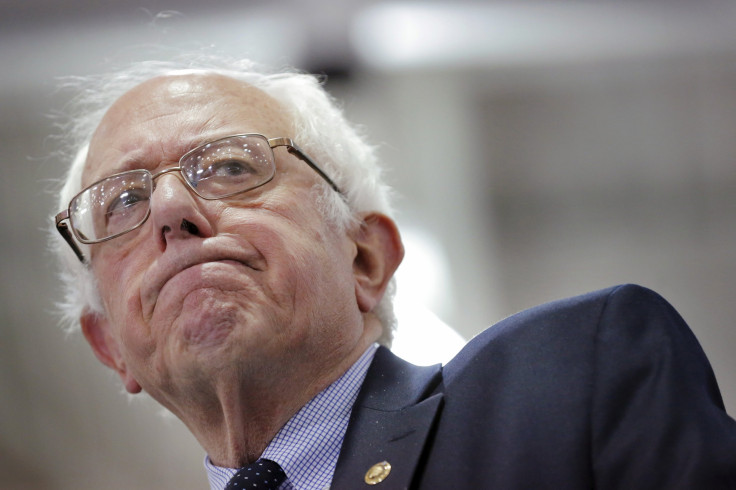What’s Next For The Bernie Sanders Revolution?

Having lost New York by a significant margin Tuesday, Sen. Bernie Sanders is faced with what may be an insurmountable delegate deficit. As his opponent Hillary Clinton put it in her New York victory speech, the Democratic nomination contest is "in the home stretch." It's worth asking what comes next.
Sanders has always described his project as more of a movement than a typical political campaign. That movement doesn't need to fade away after the primaries, even if Clinton seals up the nomination within the next month or two. Sanders might still be able to help mobilize resources in support of his policy goals.
His campaign's most precious asset is arguably its record-breaking fundraising operation. Thanks to an army of small donors, Sanders has repeatedly bested the Clinton campaign in monthly fundraising hauls. If he doesn't make it into the general election, his donors could still be tapped to support Sanders-like candidates on the local, statewide and congressional levels.
"I'm sure other candidates would love access to his donor list," political consultant and George Washington University adjunct Gary Nordlinger told International Business Times.
Earlier this year, the New Republic identified four members of "Bernie's Army," downticket candidates who share much of the presidential candidate's political philosophy and rhetorical style. Last week, the Sanders campaign issued fundraising emails to support two of them: Nevada congressional candidate Lucy Flores and New York congressional candidate Zephyr Teachout. The campaign also sent an email on behalf of Pramila Jayapal, who is running for Congress in Washington state. Flores, Teachout and Jayapal are all Democrats who have backed Sanders in the primaries.
Small donations from Sanders supporters could be a useful resource in competitive districts. But Nordlinger said he doesn't expect Sanders to do much fundraising for Clinton if she's the nominee.
"I can't imagine he's going to be particularly enthusiastic about using it to fund the presidential effort," he said.
Sanders could also attempt to convert some of his campaign's assets into a political action committee, in a manner similar to the Democratic Party creating Organizing for America out of the Obama campaign after the president took office. But Nordlinger was doubtful about the efficacy of such a move.
"It was really not very successful," he said of Organizing for America. "I can't think of one major issue it had an impact on, so Sanders would have a difficult time."
© Copyright IBTimes 2024. All rights reserved.






















